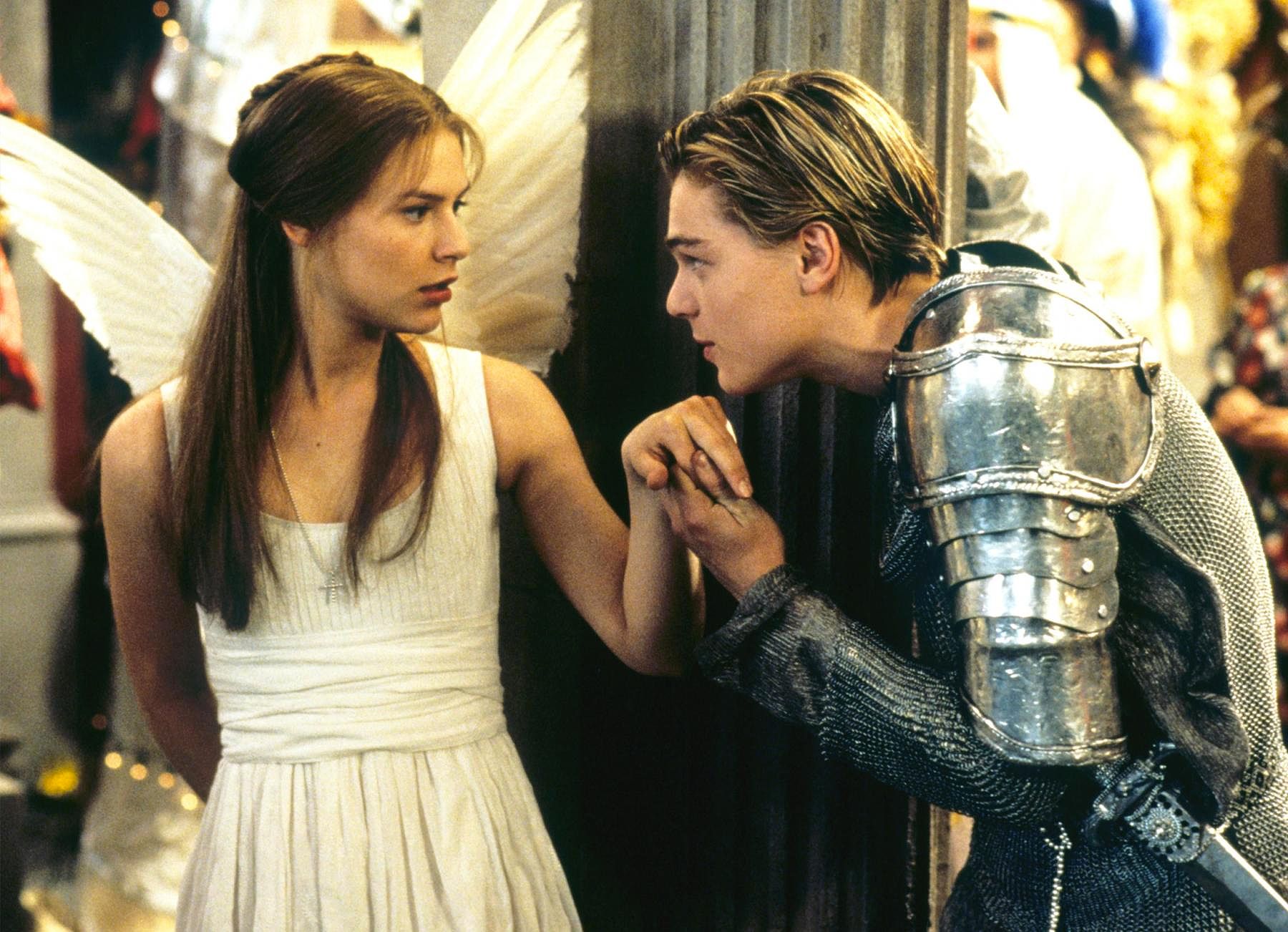Oh, English. Just when we’re starting to feel good about you, your strange pronunciation techniques strike again!
Monday, March 7, 2022
The combination “ough” can be pronounced in 10 different ways
Saturday, March 5, 2022
The British Empire and the iPhone are some of the biggest reasons English is so widespread today
Some of you may wonder why English is such a popular language worldwide today. While there are many reasons, here are some of the biggest.
The British Empire refers to the period between roughly the late 15th to 17th century and the 1960s, when England had vast territories and colonies all over the world. Essentially, this was when England controlled large portions of Europe, North America, Africa and the West Indies.
You can imagine how English would’ve spread globally with such an enormous empire.
The second big English boost occurred with the rise of the U.S. in the 20th century, when the country became one of the biggest international players in social, economic and political affairs.
Lastly, many of the recent technological and scientific advancements have come from English-speaking countries. Just consider international words like internet and iPhone.
Most English words come from French or Old English
Following the Norman Conquest in 1066, French became the language used by the nobility in Britain. Meanwhile, the peasants and lower classes continued to use Old English, which was made up of Germanic vocabulary.
Eventually, inter-marriage brought about a mixing of the two languages, and Middle English—which is much closer to today’s English—was born.
Why’s this matter to English learners?
Well, this history can help you figure out when to use certain words. The words that came from French are often considered more formal or sophisticated, while words that came from Old English are more informal.
Take the words commence and begin, which both mean “to start.” Commence is a much fancier word. Native English speakers would only use it in more formal settings.
For example, you could use it while discussing business affairs: “The marketing team commenced work on the project.”
On the other hand, begin is a more casual word that native speakers use frequently.
Can you guess which word comes from French and which one comes from Old English?
Commence is basically the same word that the French currently use: commencer (to start). The word begin comes from the (now unused) Germanic word beginnan, which also meant “to start.”
Thursday, March 3, 2022
Shakespeare added over 1,000 words to the English language
Shakespeare added over 1,000 words to the English language
Almost everyone in the world has heard of the great William Shakespeare, the famous English poet and playwright of the 16th century. From love sonnets to plays like “Romeo and Juliet” and “Hamlet,” Shakespeare has greatly influenced English literature.
But did you know that the English language itself wouldn’t be the same without Shakespeare?
Shakespeare invented over 1,000 words, which he incorporated into his writing. Today, native English speakers still use these words in everyday speech.
Just some of the fantastic words and phrases invented by this famous poet include:
Addiction — Being psychologically or physically dependent on something, usually a drug.
Bedazzled — Blinded by something incredibly wonderful.
Cold-blooded — Either an animal with cold blood (like a reptile) or a way to describe someone who’s cruel and indifferent to emotion.
Swagger — To walk in a way that shows you’re boasting or disrespectful.
Break the ice — To relieve the tension or silence in a conversation by talking.
To see some of the other interesting sayings and words Shakespeare invented, check out these articles from Mental Floss and The Intrepid Guide, as well as this great article from Open Culture.
Wednesday, March 2, 2022
Much of English is foreign
Much of English is foreign
The English Language is an eclectic mix of Indo-European, old Norse, Greek, Latin, German, French…(and other sources). Many everyday words come from afar, such as jodhpurs after the Indian city, chocolate from Aztec, anorak from Eskimo, aficionado from French, embargo from Spanish, and so on. To this day new words are added from diverse sources and goodness only knows what will happen to text language, OMG I hope not, TIME, CU Wordsworth. To think that the rest of the world is also using these acronyms, I mean can’t they think up their own?
Foreigners can find English hard to understand
Foreigners can find English hard to understand

I was down the pub having some nosh when
I noticed this nutter going in and out the loo.
I said to my mate: “Bet you a tenner there’s
something well dodgy going on there.” “I
should mind your beeswax” he replied, “I’m
off to Bedfordshire.” Just as the nutter was
going back into the loo, Bob’s your uncle,
the Fuzz arrived.
Gobsmacked, my mate fell off his stool (actually I think he was plastered).
“Keep your hair on,” I said. “The coppers are here for him, not you.” As a
classroom activity, work on different paragraphs like the one above, in
small groups, and provide a translation in proper English!
Less radical than slang for the English language classroom are metaphors
and similes. The English are champions for quirky metaphors. While the
French say it’s raining ropes, the Spanish say it’s raining jugs, the Italians
say it’s raining like a shower, all of which give a good visual of very heavy
rain, the English say it’s raining cats and dogs. Where did they come from?
Call my bluff definitions is a fun language game to work with metaphors
and help expand a student’s knowledge of English. Check the resource
box below the blog for a link to language learning activities.
Wednesday, February 2, 2022
Is the English language constantly changing?
Language is constantly adapting and changing to reflect our changing lives, experiences and cultures.
Language change enables us to accommodate new ideas, inventions and technologies.
It's not just the words themselves which change; the way in which we use them can shift too.
Why does language change over time?
Language isn’t fixed; it is always evolving. The English language has changed dramatically over the last millennium.
There are many different ways that this evolution happens. Here are some of the primary ways:
1. Trade and migration
As cultures interact, mix and trade, language shifts to accommodate these changes.
English, for example, often borrows from other languages. These are called loanwords.
Avatar, tsunami and sudoku are good examples of more recent loanwords.
Can you guess which languages we have ‘borrowed’ these words from?
2. Technology and new inventions
New words and phrases are also invented to describe things that didn’t exist before.
A few years ago we weren’t lured by clickbait and didn’t worry about our carbon footprint. It is only recently that we have taken selfies or listened to podcasts.
Sometimes these invented words are the fusion of two words that existed before.
These are known as portmanteau words. For example, blog comes from the combination of web and log.
3. Old words acquiring new meanings
Nice is often given as an example of a word shift.
Over seven hundred years it has changed its meaning from 'foolish' to 'shy', then to 'dainty', from there to 'delightful' and to our modern meaning of 'giving pleasure or satisfaction'. Some shift!
The internet has been responsible for a number of more recent word shifts: mouse, surf and web are obvious examples.
Language change today
Think about the English-speaking world today. We are experiencing an exceptional amount of international trade, migration and technological change.
Just as the world is quickly changing around us, so is the language we use.
Have you noticed the way you use language changing recently?
<a href='https://www.freepik.es/vectores/fondo'>Vector de Fondo creado por dooder - www.freepik.es</a>
<a href='https://www.freepik.es/vectores/fondo'>Vector de Fondo creado por macrovector - www.freepik.es</a>
<a href='https://www.freepik.es/vectores/tecnologia'>Vector de Tecnología creado por vectorjuice - www.freepik.es</a>
Sunday, January 23, 2022
11 fascinating facts about English
As teachers, we are necessary to motivate our students. It's interesting to know facts that permit them to trigger their motivation to learn English and share this with their friends and relatives to inspire them to follow the same way if possible for them. So I decided to post this interesting facts...I hope you could enjoy it as I did! 😀
English is one of the most widely spoken languages in the world, and with the British Council estimates that 2 billion people will be learning it by 2020, that certainly looks set to continue. But how much do you know about the language? Here are 11 facts about English that you (probably) didn’t know.
1. English is the language of the skies
You might know that English is the language of many lands (it’s the official language of 67 countries) but did you know it’s the language of the skies, too? That’s right, English is spoken by all pilots to identify themselves on flights, regardless of where they are from – yet another way in which learning English improves employability, to join our examples in tourism and multinational companies.
2. You or me?
We use the words ‘you’ and ‘me’ all the time, but which of the two do you think is the most widely used? You might be surprised to learn that while ‘you’ is the 18th most commonly used word in the English language; ‘me’ is way back at number 50. So what is the most used English word? Exactly that: ‘the’.
3. One in a billion!
If you were to write out every number in order as words (e.g. one, two, three, four…) you wouldn’t use the letter ‘b’ until you reached one billion!
4. No repeats!
‘Subdermatoglyphic’ is the longest English word that can be written without repeating any letters. It has 17 letters in it, and it’s the medical name for the layer of skin beneath the fingertips. Slightly easier to guess the meaning of is the word ‘uncopyrightable’, which has 15 letters without any being repeated, and refers to something that can’t be copyrighted or owned.
5. Shakespeare was an architect of the English language
The legendary playwright was responsible for many of the things we say and write today. These include the words ‘fashionable’, ‘advertising’ and ‘laughable’, and the phrase ‘fight fire with fire’, which means to respond to attack with a similar form of attack.
6. New arrivals to the dictionary
A new word is added to the dictionary every two hours. The newest and strangest include ‘nerdjacking’ (to hijack a conversation with detailed explanations), ‘undorse’ (to reverse a policy) and ‘Mx’ (a gender-neutral form of address instead of using Mr or Ms).
7. Same word, different meanings
You may know a ‘twerk’ to be a popular, thrusting dance but in the 16th century ‘twirk’ (spelt with an ‘i’ not an ‘e’) meant ‘to twist the hairs of a moustache’. Speaking of twerking, here’s a selection of some of our favourite modern words and slang terms you should know.
8. The origins of English
English originates from Old English, which is its earliest historical form from the 5th century. There was no punctuation until the 15th century. The oldest Old English word still used today that has the same direct meaning is ‘town’. Town has kept the same meaning as its original Old English word “tun” meaning area of dwelling.
9. Time to move
‘Go.’ is the shortest grammatically correct sentence in English.
10. The enemies of poets
There are no words in English that rhyme perfectly with ‘month’, ‘orange’, ‘silver’ or ‘purple’. The definition of a ‘perfect rhyme’ can be found here.
11. What’s an ‘aegilops’?!
The longest word in English with its letters in alphabetical order is ‘aegilops’, which is a type of plant.









